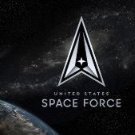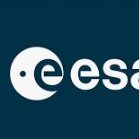Members Can Post Anonymously On This Site
SecAF travels within EUCOM AOR to strengthen international partnerships
-
Similar Topics
-
By Space Force
Chief of Space Operations Gen. Chance Saltzman and Chief Master Sgt. of the Space Force John Bentivegna hosted military space leaders from 18 other countries at the annual Space Chiefs Forum.
View the full article
-
By European Space Agency
With the launch of ESA’s Biomass satellite scheduled for 29 April, preparations at Europe’s Spaceport in Kourou, French Guiana, have reached a key milestone. The satellite has now been sealed inside the protective fairing of the Vega-C rocket – now hidden from view, the satellite is almost ready for its journey into space.
View the full article
-
By Space Force
Chief of Space Operations Gen. Chance Saltzman gave insights into a new, soon-to-be-released International Partnership Strategy at the 40th Space Symposium.
View the full article
-
By NASA
NASA/Joel Kowsky A Soyuz rocket launches to the International Space Station with Expedition 73 crew members including NASA astronaut Jonny Kim on Tuesday, April 8, 2025, at the Baikonur Cosmodrome in Kazakhstan.
The crew arrived at the space station the same day, bringing the number of residents to 10 for the next two weeks. Expedition 73 will begin on Saturday, April 19, following the departure of NASA astronaut Don Pettit and Roscosmos cosmonauts Alexey Ovchinin and Ivan Vagner, as they conclude a seven-month science mission aboard the orbiting laboratory.
Throughout his eight-month stay aboard the orbital outpost, Kim will conduct scientific research in technology development, Earth science, biology, and human research.
Follow space station activities on the International Space Station blog.
Image credit: NASA/Joel Kowsky
View the full article
-
By Space Force
Avalon is the Southern Hemisphere’s largest airshow and aerospace and defense exposition. During the 2025 event, multiple industry exhibits, keynote speakers and engagements focused on current priorities and future development of space concerns.
View the full article
-
-
Check out these Videos




Recommended Posts
Join the conversation
You can post now and register later. If you have an account, sign in now to post with your account.
Note: Your post will require moderator approval before it will be visible.